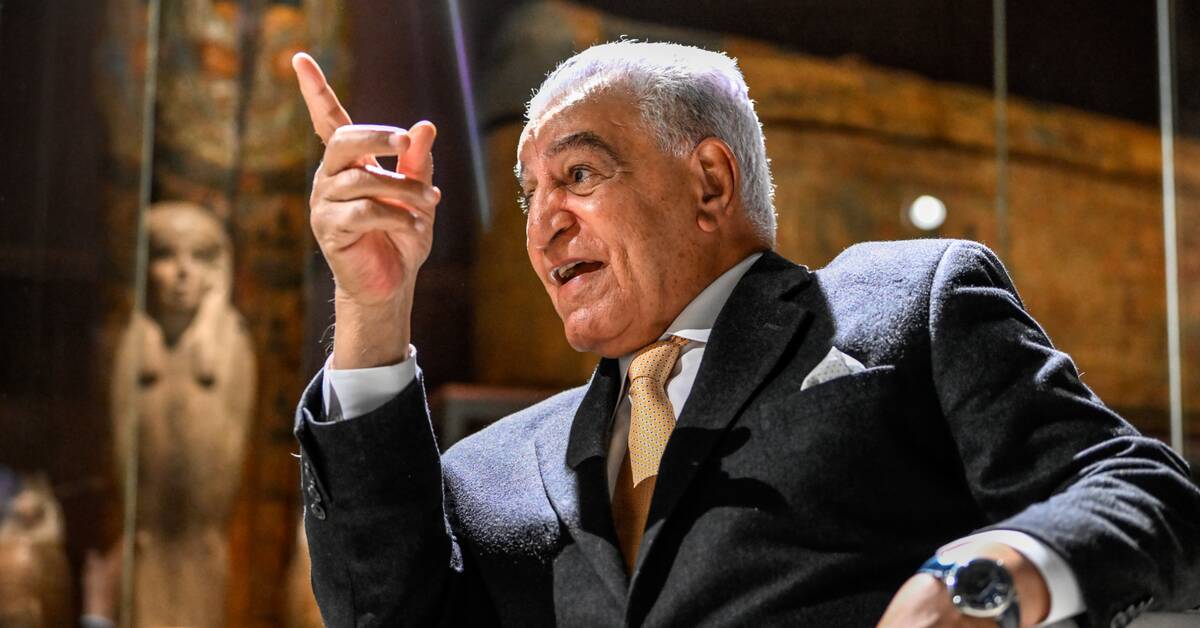Zahi Hawass has been called the King of the Pyramids, and sometimes compared to Indiana Jones for his way of making archeology exciting.
- Egypt has magic, it has excitement, it is an adventure.
And all people love adventure, he says when Kulturnyheterna meets him in the burial chamber of the Mediterranean Museum.
He is here to lecture on the latest scientific news surrounding the Pyramid of Cheops and the tunnels under the Sphinx of Giza, but his main job is, in fact, to attract tourists to Egypt in the name of science.
- Restoring and conserving the Egyptian monuments and building museums costs money and that comes from the tourists, he states.
During his 50 years as an archaeologist, Zahi Hawass has made significant finds, worked continuously in the Valley of the Kings since 2007 and, among other things, discovered two new tombs in the area.
But he is most proud of having decolonized Egyptian archaeology.
- My main contribution is that I made sure that Egyptian archaeologists are good archaeologists, he says and continues:
- When you hear about a discovery (about ancient Egypt, ed. note) made now, it is an Egyptian archaeologist who is doing the work.
It makes me happy.
Refuses to give up
Next year, the world's largest archaeological museum, the Grand Egyptian Museum, will open after a number of years of delays.
Zahi Hawass has constantly used his position of power to try to persuade museums in London, Paris and Berlin to lend at least some of the most valuable objects taken from Egypt, but all have refused.
- That's when I decided to make it difficult for them.
And I have done that.
Whether he succeeds remains to be seen.
He has not given up, because he is a constant optimist.
That said, there is now one threat that demands action: climate change.
The humidity, the heat, the rainstorms make the Valley of the Kings live dangerously.
- In less than a hundred years, all the beauty in the Valley of the Kings may be gone.

